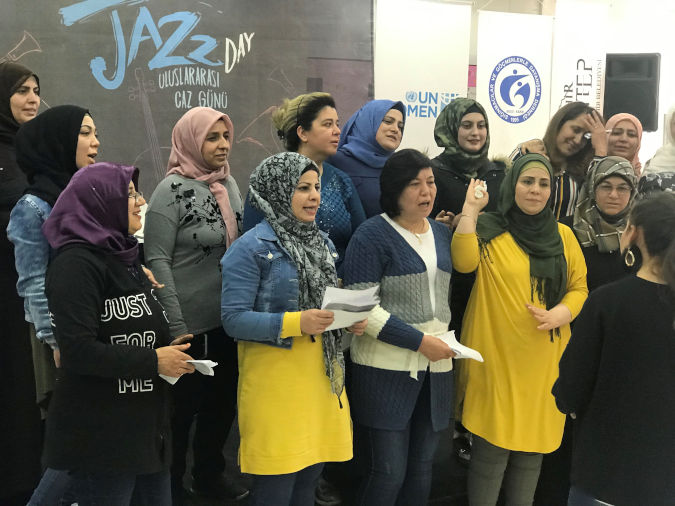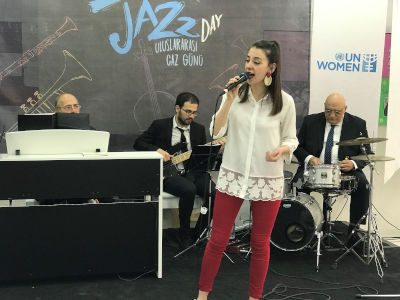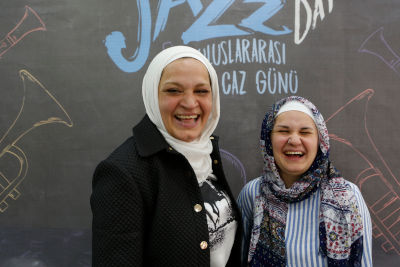Refugee and Turkish women in Gaziantep joined to a Jazz workshop
To mark International Jazz Day, refugee and Turkish women in Gaziantep, a city near Turkey’s southern border with Syria, met with jazz singers, learned about jazz and sang all together.Date:

On the occasion of International Jazz Day, UN Women office in Turkey organized a jazz music workshop for refugee and Turkish women in Gaziantep. The half day event provided an interactive space for jazz musicians to talk about the universal value of music, history of jazz music, different types of jazz and jazz songs. The musicians and women sang and danced together.

The event has been organized at the SADA Women Empowerment and Solidarity Center and welcomed the beneficiaries of the center who have interest in music and created a warm environment for social cohesion. At the event Ahmet Berker, academician at the University of Hacettepe Ankara Sate Conservatory, and his colleagues Ceren Temel, İrfan Dündar Erentürk and Selçuk Canberk Dağtekin provided brief information about globally known jazz singers and performed some of the most well-known jazz music around the world. The musicians discussed how jazz serves for universal peace, inter-cultural interaction and exchange.
At the end of the event women learnt a Jazz song and performed it together with the musicians.

The SADA Center operates under the leadership of UN Women, in partnership with Gaziantep Metropolitan Municipality, Association for Solidarity with Asylum Seekers and Migrants (ASAM) and International Labour Organisation (ILO) within the framework of the European Union financed project “Strengthening the Resilience of Syrian Women and Girls and Host Communities”.